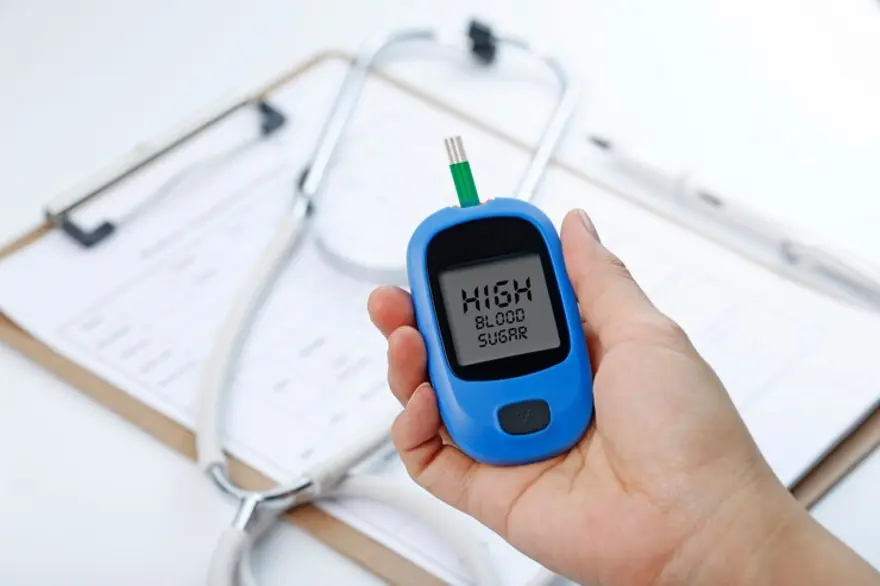Preventive Healthcare
Understanding the Difference Between Type 1 and Type 2 Diabetes
1321 Views
0

Overview
Have you ever wondered about the difference between Type 1 and 2 diabetes? Although both types share high blood sugar levels as a symptom, they differ in causes, age of onset, treatment approaches, and risk factors. Understanding what is type 1 and type 2 diabetes and their distinctions are essential for accurate diagnosis, personalised treatment plans, and preventive measures.
Type 1 diabetes occurs when the immune system attacks and destroys insulin-producing beta cells in the pancreas, leading to insufficient insulin production. It is typically diagnosed early in life. On the other hand, Type 2 diabetes often develops in adulthood and is characterised by insulin resistance, where cells do not respond effectively to insulin. Eventually, the pancreas may not produce enough insulin.
Symptoms of Type 1 And Type 2 Diabetes
There are notable differences between the symptoms of type 1 and type 2 diabetes. Let us take a look at the common type 1 vs type 2 diabetes symptoms:
Type 1 Diabetes Symptoms
Symptoms often appear abruptly and may escalate rapidly. Some of them are:
- Excessive thirst, also known as polydipsia, is a distinguishing symptom caused by your body's attempt to flush out excess sugar through urine.
- Increased urination, or polyuria, occurs as your kidneys work to eliminate excess glucose from the bloodstream.
- Despite increased appetite, you may experience unexplained weight loss due to the body's inability to utilise glucose for energy.
- Feeling unusually tired or fatigued is common.
- High blood sugar levels can cause blurred vision.
Type 2 Diabetes Symptoms
Symptoms often develop slowly over time, making them easier to overlook or dismiss. For instance:
- Despite eating regularly, you may feel hungry more frequently due to your cells not receiving adequate glucose.
- Wounds may take longer to heal due to poor circulation and compromised immune function.
- Peripheral neuropathy, characterised by numbness, tingling, or pain in your hands and feet, may be seen.
- Yeast infections, urinary tract infections, and skin infections may occur more frequently.
- Acanthosis nigricans, characterised by dark, velvety patches of skin, may develop in skin folds such as your neck, armpits, or groin.
What are The Risk Factors For Type 1 And Type 2 Diabetes?
Let's go through the common type 1 diabetes vs type 2 risk factors.
Risk Factors for Type 1 Diabetes
- Family history plays a significant role in Type 1 diabetes. One might be at a higher risk if you have a close relative with the condition.
- Having autoimmune conditions such as Hashimoto's thyroiditis, Graves' disease, Addison's disease, etc., can increase the risk of developing Type 1 diabetes. In such conditions, the body destroys insulin-producing cells in the pancreas, making one vulnerable to Type 1 diabetes.
- Some research suggests that early exposure to viral infections (enterovirus) or dietary factors (milk protein, gluten, etc.) during infancy may increase the risk of developing Type 1 diabetes later in life.
- Type 1 diabetes incidence varies geographically, with higher rates observed in northern latitudes. It is usually linked to factors such as sunlight exposure and Vitamin D levels.
Risk Factors for Type 2 Diabetes
- Obesity is one of the major risk factors as it contributes to insulin resistance.
- Lack of physical activity increases the risk by promoting weight gain.
- Consuming a diet high in processed foods, sugar, and saturated fats and low in fruits, vegetables, and whole grains contributes to insulin resistance and obesity. This increases the risk of Type 2 diabetes.
- Having a family member with Type 2 diabetes may increase the risk.
- The risk increases with age, particularly after 45, due to factors such as decreased physical activity, muscle mass, and pancreatic function.
How are Type 1 and Type 2 Diabetes Treated?
Type 1 and Type 2 diabetes require different approaches.
For Type 1
- Most individuals with Type 1 diabetes rely on exogenous insulin injections to replace the insulin their pancreas cannot produce.
- Multiple daily injections or continuous insulin infusion are typically required to maintain stable blood sugar levels.
- Regular monitoring of blood glucose levels using glucometers or Continuous Glucose Monitors (CGMs) is essential for adjusting insulin doses and preventing hyperglycaemia or hypoglycaemia.
- Regular exercise, a balanced diet, adequate sleep, and stress management complement insulin therapy in managing Type 1 diabetes.
For Type 2
- Initial treatment for Type 2 diabetes often involves lifestyle changes such as adopting a healthy diet, engaging in regular physical activity, maintaining a healthy weight, and quitting smoking.
- Oral medications such as metformin, sulfonylureas, DPP-4 inhibitors, SGLT2 inhibitors, or GLP-1 receptor agonists may be prescribed to improve insulin sensitivity, reduce blood sugar levels, or stimulate insulin production.
- In advanced cases or when oral medications are ineffective, insulin therapy may be initiated either alone or in combination with oral medications.
Type 1 and Type 2 Diabetes Differences
A summary of the difference between type 1 and 2 diabetes is tabulated below:
|
Grounds |
Type 1 |
Type 2 |
|
Causes |
It is caused by the autoimmune destruction of pancreatic beta cells |
It is caused due to insulin resistance and pancreatic beta-cell dysfunction |
|
Risk factors |
Genetics and autoimmune conditions increase the risk of type 1 diabetes |
Obesity, sedentary lifestyle, genetics, age, etc., are common risk factors for type 2 diabetes |
|
Symptoms |
Extreme thirst and weight loss are seen in this condition. |
Increased hunger, slow healing, and fatigue are common symptoms of type 2 diabetes. |
|
How to diagnose type 1 diabetes vs type 2 |
Blood tests for autoantibodies and low C-peptide levels are the commonly employed biomarkers for diagnosis. |
Blood tests for fasting glucose, oral glucose tolerance tests, HbA1c levels, etc., are generally used to diagnose type 2 diabetes. |
|
Management |
Lifelong insulin therapy, blood sugar monitoring, healthy lifestyle are required.
|
Lifestyle modifications and oral medications are commonly used. Insulin therapy may be prescribed if needed. |
|
Complications |
Diabetic ketoacidosis and long-term organ damage may occur if not managed. |
Cardiovascular disease, neuropathy, nephropathy, retinopathy, etc., may be seen if not managed properly. |
|
Which is worse, type 1 or type 2 diabetes |
Has to be managed lifelong to maintain blood sugar levels. |
It can be prevented but can lead to serious complications if ignored. |
The Emotional Impact of Type 1 And Type 2 Diabetes
Living with Type 1 or Type 2 diabetes can be emotionally challenging. The constant fear of complications and difficult lifestyle adjustments can lead to feelings of stress and frustration. Therefore, it is important to seek support from your doctors, family, and friends to cope with these emotions effectively.
Can Type 1 or Type 2 Diabetes Be Cured Or Prevented?
Type 1 diabetes cannot be cured or prevented due to its autoimmune nature. However, Type 2 diabetes can often be prevented or delayed through healthy lifestyle choices such as maintaining a balanced diet, regular exercise, maintaining a healthy weight, and avoiding smoking.
Conclusion
Understanding the difference between Type 1 and 2 diabetes is necessary for effective management. While Type 1 diabetes cannot be prevented, Type 2 diabetes can often be delayed or even cured through healthy lifestyle choices if detected early. Hence, early and proper diagnosis is key. To help you with prompt diagnosis, Metropolis Healthcare is at your service with accurate blood sugar tests and comprehensive diabetes screening, offering both at-home testing and state-of-the-art diagnostic labs across the country. Book your test today!























 WhatsApp
WhatsApp